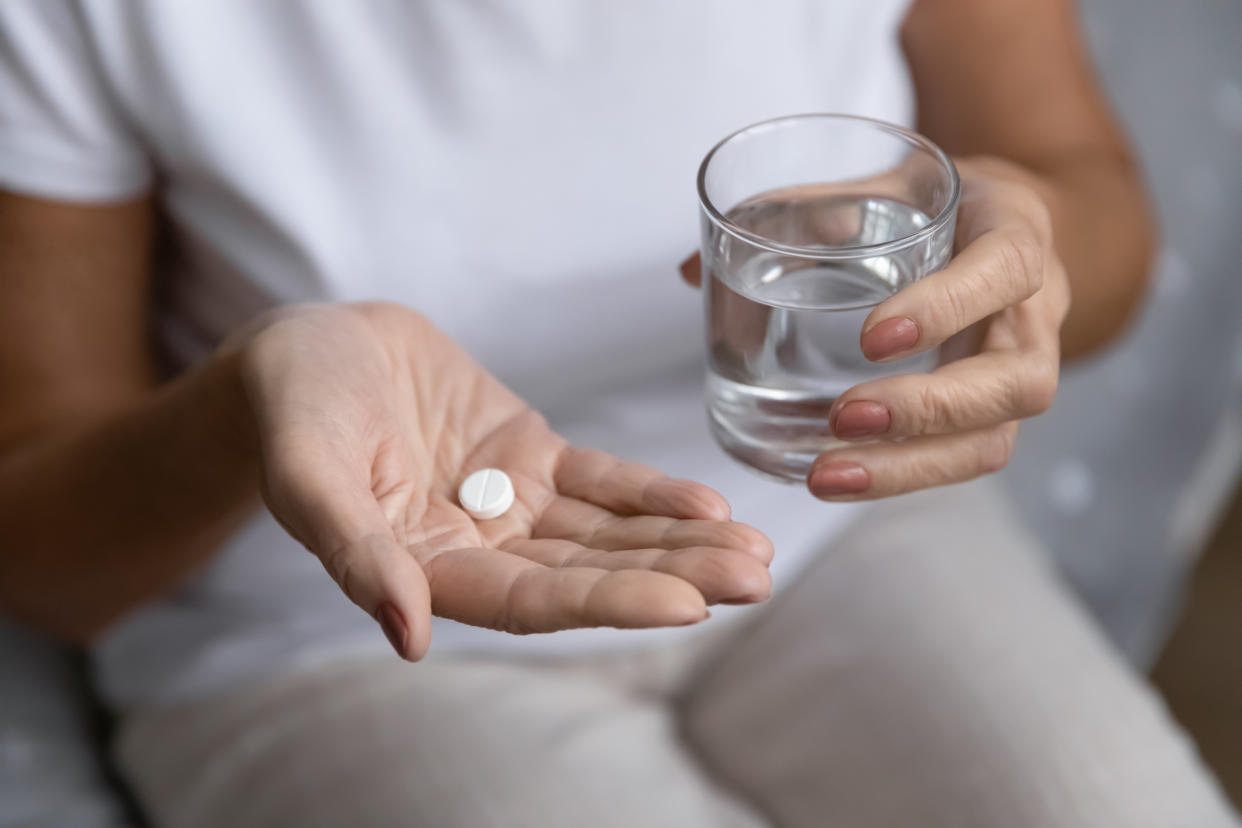Tens of millions of older Americans are taking low-dose aspirin, survey finds. For many, the medication's risks may outweigh the benefits.

Many older adults are unknowingly putting themselves at risk for internal bleeding by taking low-dose aspirin preventively, a new survey finds, even though it is no longer recommended by health officials, unless seniors already have cardiovascular disease.
About a third of adults 60 and older said they routinely take aspirin when they shouldn’t be doing so, according to the study, published in the journal Annals of Internal Medicine on June 24. That means that an estimated 18.5 million people are taking a medication that poses more risk than benefit to their health.
For many years, the conventional wisdom was that “an aspirin a day keeps the doctor away” by reducing heart attack risks. Doctors no longer think that the benefits of taking daily low-dose aspirin outweigh the risks for people who don’t already have heart disease — but day-to-day practices haven’t caught up, the study suggests.
Here’s what to know about the new research, and whether you should be taking a daily low-dose aspirin.
What did the study find?
Researchers at the Cleveland Clinic surveyed more than 186,000 adults ages 40 and older in the U.S. about their aspirin use in 2021. Nearly 20% said they used aspirin for “primary prevention,” meaning to prevent a first heart attack or stroke from happening. Rates were even higher among those ages 60 and up: Just shy of 30% were using aspirin for this purpose.
More than 5% of people who were taking aspirin for primary prevention were doing so without the advice of their doctors, while the other 95% had either told their doctors they were using the over-the-counter drug or been advised to take it by their doctors.
Why is that a problem?
In the 1990s, a spate of research suggested that taking low-dose aspirin regularly could reduce the risks of having a first heart attack or stroke by preventing one of their most common causes: blood clots. However, that was never without risk. “The way aspirin works is it basically works against an enzyme called cyclooxygenase,” which plays a key role in clot formation, Dr. Prashant Vaishnava, preventive cardiologist at Columbia University Irving Medical Center, tells Yahoo Life. “Through that inhibition, it actually increases the risk of bleeding because it renders the platelets less likely to clump together,” a phenomenon that normally helps stop internal bleeding, he explains.
The studies from three decades ago suggested that the risk of bleeding — primarily in the gastrointestinal tract — was worth it, given the benefit for heart attack and stroke prevention. But research published in 2018 turned that thinking on its head, especially for older people. “The decision to treat with any medication is essentially a balancing act between the benefits and risks of that drug,” Dr. Mohak Gupta, a senior resident physician at Cleveland Clinic and co-author of the new study, tells Yahoo Life. “The benefits of primary prevention aspirin are lower and risks are higher than we previously knew.” As a result, the U.S. Preventive Services Task Force (USPSTF) changed its recommendations for aspirin use in 2022.
Who should be taking daily low-dose aspirin?
Aspirin’s benefits are still considered to outweigh the risks for people who have already been diagnosed with cardiovascular disease, including anyone who has had a prior heart attack or stroke. This is known as "secondary prevention," meaning the goal is to prevent additional dangerous cardiac events.
Daily low-dose aspirin is recommended for those between ages 40 and 59 who have already had a heart attack or stroke or have a greater than 10% chance of having one in the next decade, according to the USPSTF.
“If you’re on aspirin because you have known cardiovascular disease, you should be taking your aspirin,” Dr. Martha Gulati, director of prevention at the Cedars-Sinai Heart Institute, tells Yahoo Life emphatically. She notes that, after the USPSTF changed its recommendations, there were “a horrid few weeks” when patients who should be taking aspirin stopped. She cautions against a repeat of that time.
Who should not be taking aspirin?
For those who haven't been diagnosed with heart disease and have a lower risk of heart attack or stroke, and for anyone age 60 and older who does not have heart disease, taking low-dose aspirin is not worth the chance of internal bleeding, according to the USPSTF. “We don’t have a good answer as to why [older people are particularly at risk], but we know that aspirin in and of itself leads to changes in the gastrointestinal tract that increase bleeding risks,” Gulati explains.
What can people without heart disease do instead to reduce their risks?
Experts’ advice is simple and familiar: Maintain a heart-healthy diet, don’t smoke or try to quit if possible, stay active and keep your cholesterol and blood pressure under control, they tell Yahoo Life.
“Talk to your doctor about things in your lifestyle that you should be doing on a regular basis to keep your body healthy,” Gulati advises, especially if you’re 60 or older. For example, “Just keep your body moving because exercise is always an independent predictor of mortality and cardiovascular mortality,” she says.
And don’t forget to “maintain social support,” she adds. Gulati says many of her older patients have lost friends and spouses, so she recommends that they make younger friends. “Older people need social support and to not be lonely [because it can lead to] depression, and depression can affect your heart health as well.”


